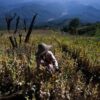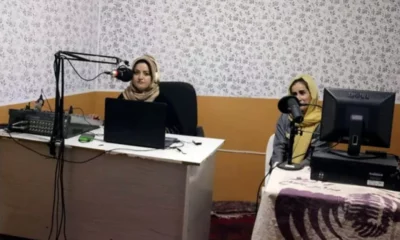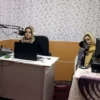Two weeks after Afghanistan fell to the hands of the Taliban, many in the country are living in fear.
Although Taliban leaders have promised amnesty to Afghan officials and soldiers, but there are reports of detentions, disappearances and even executions.
The speed at which Kabul fell on 15 August, when President Ashraf Ghani fled, was potentially disastrous for hundreds of thousands of Afghans working to counter the Taliban threat, from key officials to mid-level government employees, who were not allowed to fight the Taliban were forced to go into hiding.
Two officials said few officers had time to shred documents, and thousands of top-secret files and payroll lists fell into enemy hands.
As US troops complete their withdrawal by their Tuesday deadline, much of the country is fearful of impending retaliation.
So far, the Taliban’s political leadership has presented a benevolent face, promising amnesty to government security forces who lay down their weapons, even writing letters of guarantee that they were not pursued. However, the right to prosecute serious offenses is reserved. Taliban spokespersons have also called for an inclusive government.
Taliban spokesman Suhail Shaheen said twitter post Said in English that there was no compromise of scores, nor was there a hit list with which the Taliban were conducting door-to-door searches, as is rumoured.
“General apologies granted,” he wrote, “we are focused on the future.”
Yet there are increasing reports of Taliban arrests, disappearances, and even executions of officials, which some current and former government officials refer to as the covert and sometimes deadly pursuit of Taliban enemies. describe.
“It’s pretty much underground,” said a former legislator, who was hiding elsewhere when the Taliban arrived at his home in the middle of the night.
“It’s intimidating,” he said. “I feel threatened and my family is in shock.”
The Taliban often broke into towns and districts without firing a shot, giving diplomatic assurances to their opponents and the public. But earlier commanders have often been replaced by more heavy-handed promoters who conduct raids and kidnappings, former government officials said.
The scale of the campaign is not clear, as it is being carried out in secret. Nor is it clear what level of Taliban leadership has authorized the detention or execution.
The people who seized the files of the National Directorate of Security and the Ministry of Communications may not be the Taliban: officials said they did not speak the Afghan language, and could have been agents of Pakistan’s military intelligence agency working closely with the Taliban. forces. Pakistan’s Inter-Services Intelligence Agency has long supported the Taliban in their violent opposition to the Kabul government.
The fear among the Afghans is clear. Everyone except the youngest children remember the authoritarian regime of the Taliban of the 1990s, which introduced harsh punishments, executions and public executions.
Many people have gone into hiding, changed their locations and telephone numbers, and cut off communication with friends and co-workers.
“People don’t trust the Taliban because of what they did before,” said an Afghan who worked as a translator for a NATO mission and was among those evacuated.
Human rights organisations, activists and former government officials have also struggled to understand what is happening in the vast and mountainous regions of Afghanistan, but many government officials who remain in their positions said they should be contacted by relatives and acquaintances. Frantic calls were coming in fast.
“They seem to be making a very dangerous discovery,” said Patricia Gossman, associate Asia director for Human Rights Watch. “This is police-state kind of behaviour. The message is very clear.”
One of the government officials said people in the northern province of Badakhshan have been driven out of their homes in recent days and have not been seen since. He said there has been a pattern of chasing police and security chiefs across the country, along with Afghan Special Operations Force personnel and intelligence service commandos, known as 00 units.
Asked whether reports of these actions and killings indicate Taliban policy or ad hoc revenge by individuals, he said, “It is too early to judge.”
But the official said he had received information about an internal Taliban meeting at their headquarters in Quetta, Pakistan, where the leaders discussed whether to pardon some highly trained Afghan operatives. The Taliban members had decided not to let them go as they could cause trouble for the Taliban in the future.
“If this turns into a policy, I worry,” he said.
The official, like everyone interviewed on the subject, asked not to be identified for fear of retaliation by the Taliban against his relatives inside Afghanistan.
Ghulam Sakhi Akbari, a former security police chief in the southwestern province of Farah, was fatally shot on the main Kabul-Kandahar highway on Friday, according to Facebook posts by activists. “Some activists blame the Taliban,” one wrote. The Taliban have not said anything yet.































